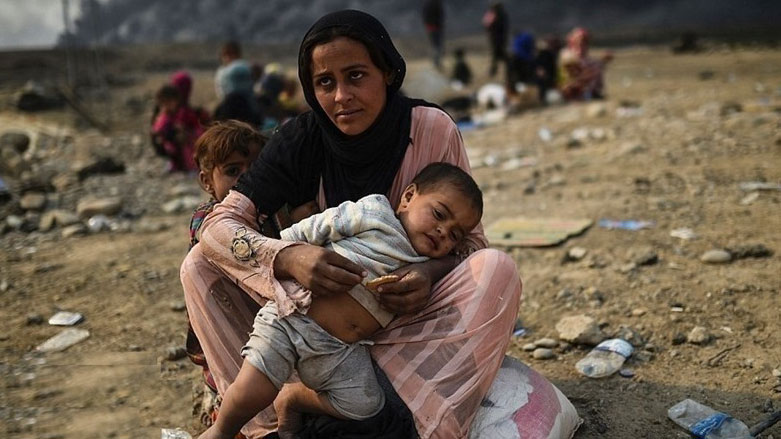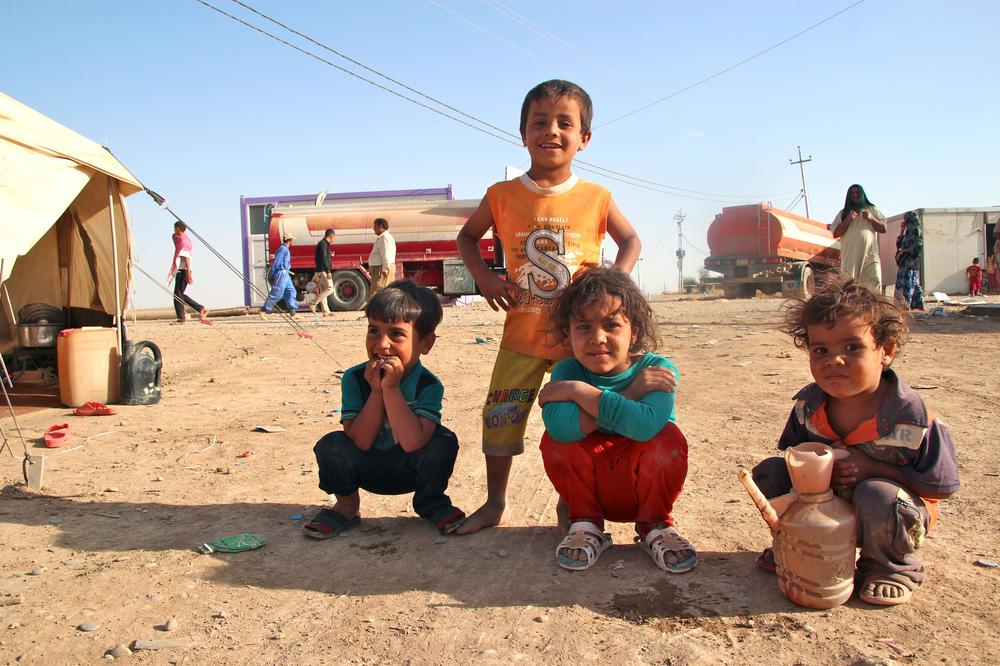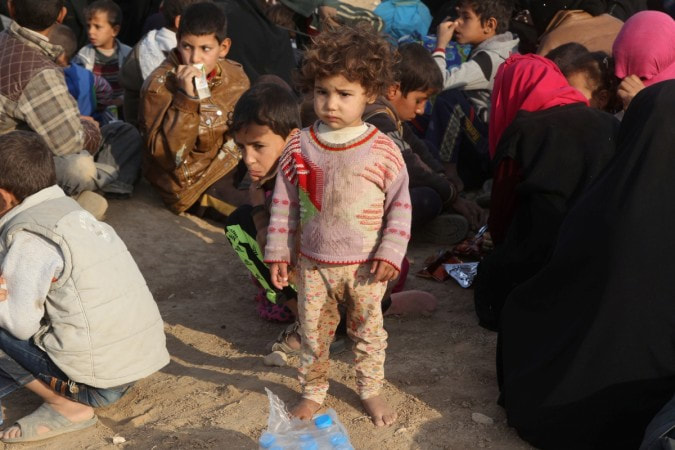The city was retaken from IS a year ago, yet the humanitarian crisis in Mosul still exists. The nine-month war to take back the city has led to its near total destruction and tens of thousands of casualties, and left great humanitarian suffering and a health crisis, especially, for children.
The children of Mosul are the first that suffered from the siege imposed by the Iraqi government, which lasted for three years, after IS invasion of the city in 2014, and caused a shortage of food, medication and lack of public healthcare services.
These children also suffered from heavy bombardment and shelling by Iraqi forces & militias backed by US-led airstrikes, during the military operation to reclaim their city from IS. The horrific massacres, barbaric bombardment, the intensity of the sound of explosions and the scenes of dead bodies and blood in the streets of the city, in addition to the bombs that destroyed the homes of the children scarred them and have had huge impacts on their mental health.
The research also found that the loss of loved ones was the main cause of distress for children, with 90% reporting the loss of at least one family member due to death, separation during their escape, or abduction.
The manager of Wasel Tasel, an Iraqi humanitarian NGO, Mohammed Dylan, said that the children of Mosul were in need of urgent health care and rehabilitation after they had gone through an accumulation of horrors under the rule of IS and then during the military operations to retake the city. The children have been suffering from psychological damage after they were deprived for years from showing their emotions, playing, education and living a normal life. They feel insecure and suffer mental health issues as a result of witnessing so many acts of brutality.
Dr. Khalil, a psychiatrist, points out that children, in general, are most likely to be affected when they experience violent situations. They usually have severe psychological shock symptoms that can have a life-long impact on their mental health.
Commenting on the role of the Iraqi government in dealing with this issue, Dr Khalil said that Iraq's Ministry of Health had not established any rehabilitation centre to deal with the crisis in Mosul. There are only a few international organisations operating in a small handful of displacement camps to conduct research and statistics on children who have psychological problems, according to Dr Khalil.
"The Ministry of Health has not done anything to support the children who are suffering from mental health and psychological damage, this will result in exacerbating the sufferings of these children and it will impact of the lives of the entire new generation", Dr Khalil said.




 RSS Feed
RSS Feed